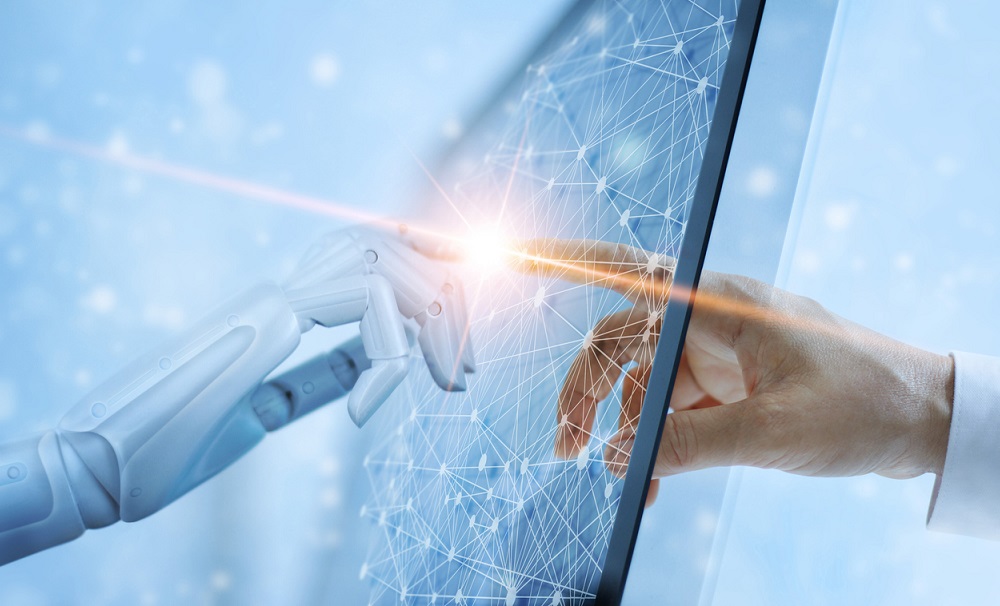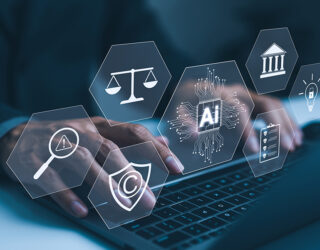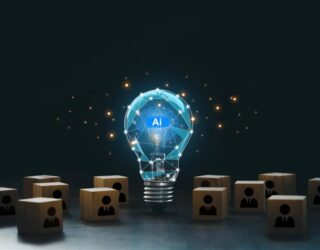The initiatives that the European Parliament is implementing in relation to artificial intelligence, include a report on intellectual property rights for the development of artificial intelligence technologies. This document leans towards recognizing that a creation generated by artificial intelligence can constitute a work, bearing in mind the creative result rather than the creative process.
According to figures by the European Patent Office, the number of patent applications registered for inventions directly related to the functioning of artificial intelligence (AI) has tripled in less than ten years, increasing from 396 in 2010 to 1,264 in 2017. International competition in this strategic field is substantial and the number of AI-related patent applications is significantly greater in countries such as the United States and China.
For this reason, the European Union is taking different steps to position itself as one of the worldwide benchmarks in artificial intelligence and the data economy. Last February, the European Commission published the intelligence, the second part of which deals with regulatory issues that are necessary to generate the ecosystem of excellence and trust pursued by the Commission. The European Parliament has addressed matters related to robotics and AI on several occasions. The most controversial document was the report of January 27, 2017 which called on the Commission to explore and analyze the implications of various options, including the creation of “ a specific legal status for robots in the long run, so that at least the most sophisticated autonomous robots could be established as having the status of electronic persons responsible for making good any damage they may cause, and possibly applying electronic personality to cases where robots make autonomous decisions or otherwise interact with third parties independently”.
The Parliament recently published three initiatives related to AI: one which deals with the ethical framework, another that focuses on liability when this technology causes damages and lastly, a report on intellectual property rights (IPR) for the development of artificial intelligence technologies, which is what we are going to analyze in this article.
The document starts by pointing out the difference between AI-assisted human creations and AI-generated creations, The latter creates new regulatory challenges for IPR protection, such as questions of ownership, inventorship and appropriate remuneration for human creators whose original work is used to feed these technologies. The European Parliament considers that where AI is used only as a tool to assist an author in the process of creation, the current IP framework remains applicable.
In this regard, it considers that works autonomously produced by artificial agents and robots might not be eligible for copyright protection, because the principle of originality which is linked to a natural person and the concept of ‘intellectual creation’ addresses the author’s personality. However, it goes on to say that the failure to protect AI-generated creations could leave the interpreters of such creations without rights, since the regulation of related rights implies the existence of copyright on the work being interpreted. Because of this, the Parliament leans towards recognizing that an AI-generated creation could be deemed to constitute a work of art on the basis of the creative result rather than the creative process. It therefore suggests that an assessment be made of the advisability of granting copyright to such a ‘creative work’ to the natural person who prepares and publishes it lawfully, provided that the designer(s) of the underlying technology has/have not opposed such use. The report makes it clear in any event that it would not be appropriate to seek to impart legal personality to AI technologies because it would discourage human creators.
The document stresses the importance of creating an operational and fully harmonized regulatory framework in the field of AI technologies and suggests that such a framework should take the form of a regulation rather than a directive in order to avoid fragmentation of the European digital single market. In this regard, it considers that the regulation should address the various aspects of AI by means of definitions that are technologically neutral and sufficiently flexible to encompass future technological developments as well as uses that are not currently envisaged.
The report also emphasizes the importance of encouraging the sharing of data generated in the European Union and highlights the need to assess whether Union rules on intellectual property are an adequate tool to protect data, including sectoral data needed for the development of AI.
Finally, the document underscores the fundamental role played by persons and human review in procedures to grant IPRs, in determining liability in situations of infringement of those rights, in the programming of devices that use AI, in the selection of input data and the application of the results obtained.
The Parliament is currently working on other related matters, including the use of AI in education, culture and the audiovisual industry. The European Commission is expected to publish the first regulation on artificial intelligence next year. For further information on the Commission’s activities in this area, click on this link.
Alejandro Sánchez del Campo Redonet
Intellectual Property Department






